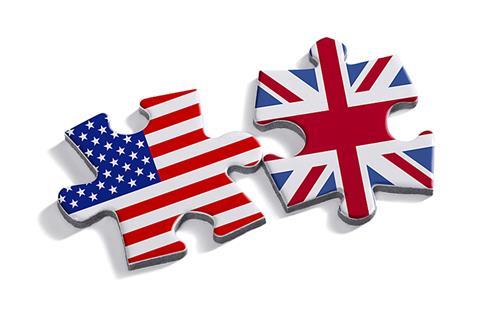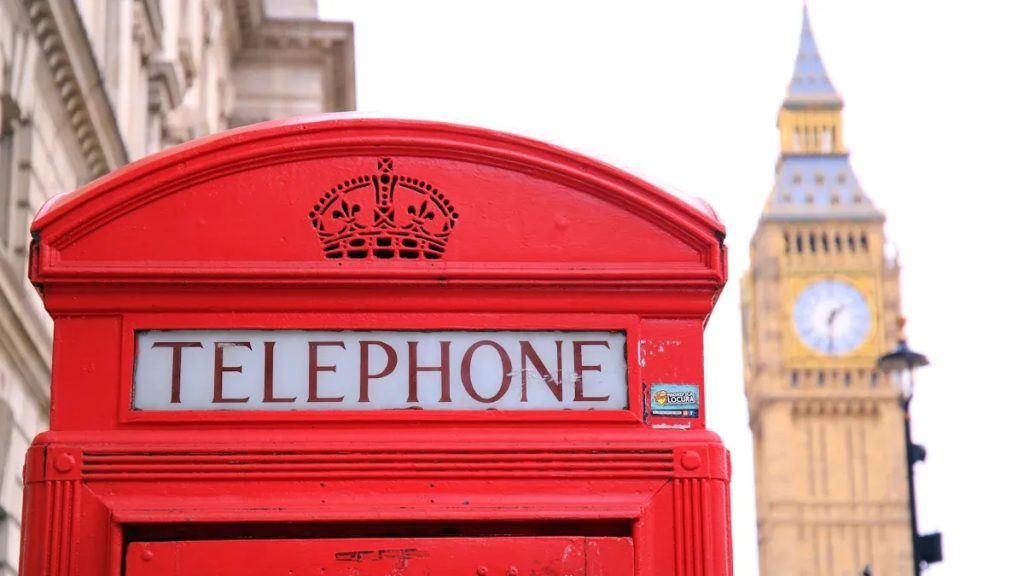Many people wonder, do Americans have the original British accent? The answer isn’t straightforward. Since the 1700s, both American and British accents have evolved. Americans retained some elements of old English, but the British accent developed new sounds over time. Today, each accent tells its own unique story. Americans do not speak like their ancestors, and people in Britain also have different ways of speaking now.
- Do Americans Have the Original British Accent?
- Differences Between American and British English
- Accent Divergence
- Myths About American English
- FAQs
Do Americans Have the Original British Accent?
What “Original” Means
A lot of people wonder if Americans speak with the original British accent. To answer this, we need to know what “original” means. In the 1600s and 1700s, people in Britain spoke in many different ways. There were lots of accents across the country. Some people had strong local sounds. Others spoke in a more common way. When settlers came to America, they brought these different accents with them. There was not just one British accent back then. Instead, there were many ways to talk.
Note: The idea that there was only one “original” accent is not true. Both Americans and people in Britain had many accents during the colonial times.
How Accents Changed
After settlers arrived, the question about the original British accent got harder to answer. Over time, both American and British English changed. Americans kept some old British English features. People in Britain started speaking in new ways. For example, Americans kept the strong “r” sound in words like “car” and “hard.” Linguists call this “rhoticity.” Most people in southern England stopped using this sound after the American Revolution.
American English also kept some old spellings and grammar. For example, Americans use spellings like “color” and “honor.” These spellings come from older British forms. Noah Webster, who wrote early American dictionaries, chose these spellings to make English simple and closer to its roots. Americans also use “-s” at the end of words like “evenings” or “Saturdays” to show something happens often. This comes from Old English and is now mostly used in America. British English changed in other ways, often because of French and other languages.
Both accents changed from how people spoke in the 1700s. The British accent changed with new trends and social changes. American English kept some old ways but also made its own style. Today, when people ask if Americans have the original British accent, the answer is no. Americans and people in Britain both speak differently from their ancestors. Each accent shows a story of change and history.
Worried your accent might hold you back in interviews? Utell AI helps neutralize your accent, so you can communicate clearly and confidently.
TRY UTELL AI
Best AI Accent Conversion Software
Differences Between American and British English

Basic Differences
There are many ways American and British English are not the same. People can hear the American accent in words like “car” or “hard.” The British accent, mostly in southern England, sounds softer. One big difference is in the words people use. Some everyday words are not the same at all. Here are some examples in a table:
| American English | British English |
|---|---|
| elevator | lift |
| garbage | rubbish |
| vacation | holiday |
| truck | lorry |
| sweater | jumper |
| cookie | biscuit |
| french fries | chips |
| line | queue |
| parking lot | car park |
| silverware | cutlery |
Spelling is another way to see the differences. Americans write “color” and “center.” People in Britain write “colour” and “centre.” These things help people know which accent they hear.
Rhoticity and the “R” Sound
Rhoticity is about how people say the “r” sound. Americans say the “r” after vowels. They say “car” and “hard” with a strong “r.” In the south of England, people often do not say the “r” at the end. This change happened after America became its own country. Americans kept the old way of saying “r.” The British accent changed and dropped the “r.” This is a big way the two accents are different.
Vowel Shifts
Vowel sounds are also very different in both accents. Americans use flat vowels in words like “cat” and “dance.” The British accent uses a longer “a” sound in those words. Both accents changed their vowel sounds over time. TV and the internet help spread new ways to talk. People hear different accents on screens and online. This can make some accents sound more alike, but many differences stay. Americans still use some old vowel sounds. The British accent lost some of these. These changes show that accents keep changing as time goes on.
Note: Media, travel, and school can change how people talk. Some differences get smaller, but new ways of speaking still show up.
Accent Divergence
Historical Timeline
Many events changed how people talk in America and Britain now. Here is a timeline that shows when the American and British English accents started to split:
- In 1607, English colonists came to Jamestown, Virginia. They spoke with rhotic accents. This means they said the “r” sound. People in England also spoke this way back then.
- By the time of the American Revolution, both British and colonial English were mostly rhotic. After the Revolution, the British upper classes stopped saying the “r” sound. This new way of talking became Received Pronunciation.
- Received Pronunciation spread in Britain. It showed class and status. Schools, the BBC, and the civil service helped make this accent popular.
- In America, some port cities like Boston and Charleston used Received Pronunciation for a short time. When more people moved to big cities in the Mid-Atlantic and Midwest, rhotic speech stayed strong.
- These places made the General American accent. It kept the “r” sound. This made it different from the British accent.
- From the 1700s to the 1900s, big changes in both countries made the accents even more different. British English lost the “r” sound. American English mostly kept it.
Immigration and Language Influence
Many groups moved to America and changed how English sounded.
- Big groups of Irish, Italian, and Eastern European immigrants came in the late 1800s and early 1900s. They brought new words and ways of talking. Cities like New York and Chicago got special accents because of this.
- Before that, English, Spanish, Dutch, and French settlers shaped speech along the East Coast.
- Mixing these languages with English made the regional American accents we hear today.
- Moving and sharing cultures still change American English. This shows how important immigration is for language.
Social Change and the British Accent
After the 1700s, British English changed in other ways too. The Industrial Revolution and science brought many new words. People made these words from Latin and Greek roots, like “biology” and “nuclear.” French and Latin had changed English before, but now there were even more science and technical words. The British accent also changed as rich people wanted to sound special. Received Pronunciation became a sign of education and status. Over time, British and American English grew further apart. Each kept some old ways and added new ones.
Myths About American English
Is American English Older?
Some people think American English is older or more “real” than British English today. This idea comes from how some American sounds are like those from the 1700s. For example, Americans say the “r” in words like “car” and “hard.” Many people in England stopped saying this sound over time. But both American and British English changed a lot. No one speaks just like people did long ago.
Note: Language always changes. Both sides of the Atlantic have new words, sounds, and styles now.
American Dialects and Old English
Some American accents keep old ways of talking. The New England accent, mostly in the countryside, sometimes sounds more like old English. The Southern accent also keeps some old words and ways of speaking. For example, people in Appalachia might say “afeared” instead of “afraid.” Early settlers from England, Ireland, and Scotland brought these ways of speaking. Over time, these accents mixed and changed. No American accent is just like old English, but some keep more old features.
Common Misconceptions
People sometimes think one accent is more “right” or “real” than others. This is not true. Every accent has its own story and is important. Some people say Americans speak “bad English” or that British English is the only real kind. Language experts do not agree with these ideas. Both American and British English changed and grew. Each one shows the people and places where it started.
Tip: Enjoy the different accents. They show the rich story of English around the world.
American Accent and Dialects
Southern American Accent
The Southern American accent stands out as one of the most recognized in the United States. People in the South often speak with a slow, smooth style. This accent keeps the “r” sound at the end of words, which is a feature from older British English. Many words in Southern american speech come from early settlers who lived in rural areas. Some people in the South use words like “y’all” for “you all.” The Southern american accent also has unique vowel sounds. For example, the word “ride” may sound more like “rahd.” This accent shows how history and culture shape the way people talk.
New England and Coastal Dialects
New England and coastal areas have their own american accent styles. In Boston, people often drop the “r” sound, saying “pahk the cah” instead of “park the car.” This way of speaking comes from old British accents that lost the “r” sound. Some rural parts of New England keep the “r” sound, which makes them closer to older English. Coastal dialects in places like Maine and Rhode Island also show special ways of speaking. These regions help show the range of different american accents across the country.
Note: The american accent changes from state to state. Each area has its own story and sound.
No Perfect Time Capsule
No american accent today is a perfect copy of 18th-century English. All accents change over time. People move, mix, and create new ways to speak. Even the oldest american speech styles have changed. Some accents keep old features, like rhoticity, but none match the past exactly. Language grows with people and their lives. The many different american accents show how English keeps changing in the United States.
Americans and Brits do not talk like their ancestors. Both groups changed how they speak over time. David Crystal’s book, The Stories of English, says English changes because of different places and people. American English kept some old ways of speaking. British English made new changes. Each kind of English has its own story. People can learn by hearing different ways people talk. Language shows us history and culture.
FAQs
What is rhoticity in American and British accents?
Rhoticity is when people say the “r” sound in words. Most Americans say the “r” in words like “car” and “hard.” Many people in southern England do not say the “r” at the end.
Why do American and British English have different spellings?
Noah Webster wanted American English to be easier to read. He changed spellings, like “color” instead of “colour.” These changes help people see if a word is American or British.
Which American accent sounds most like old British English?
Some people in rural New England and Appalachia keep old ways of talking. They use older words and say the “r” sound. These accents show how language can keep old styles.
Do British people understand American accents easily?
Most British people understand American accents from movies, TV, and music. Some words or phrases may sound odd, but people usually understand each other.
Can accents change over time?
Accents change when people move or meet new groups. Watching TV or movies can also change how people talk. New words and sounds come in, and old ways can fade. Language always changes.




I’ve always wondered about the idea of the ‘original’ British accent. This post sheds light on how the accents we recognize today have been shaped by hundreds of years of change, both in America and Britain. It’s crazy to think how accents evolve so much!
I know, right? It’s fascinating to realize that what we think of as a ‘British accent’ today is really just the result of so many historical changes. The fact that accents can shift so much over time—and even across regions—is really mind-blowing. I love learning about how language and pronunciation keep evolving!
The ‘rhoticity’ debate oversimplifies things—what we consider ‘British’ today (RP) only emerged post-1776. Colonial Americans likely sounded closer to modern West Country or Irish accents. The real twist? Some Appalachian dialects preserve 18th-century features lost in Britain, like ‘h’-dropping in ‘herb’ (still said with the ‘h’ in the UK)
ReallyBlog comment creation tips interesting breakdown of how both British and American accents evolved separately rather than one staying ‘original.’ I hadn’t considered how regional British accents in the 1600s played a role in shaping early American speech patterns—makes sense that there was never just one version to begin with. It’d be fascinating to explore how social class and migration patterns influenced these changes even further.
Fascinating topic! It’s true that American accents are closer to the original 17th-century British English than modern UK accents. Language evolution is so intriguing!
It’s so true that accents evolve based on so many factors, like geography and culture. I hadn’t thought about how the ‘British’ accent itself was already a mix of regional sounds before America even became a thing.